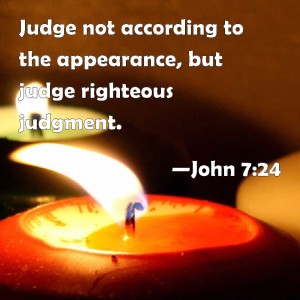So much of our culture and politics today is devoted to accentuating the differences among us. We concentrate on the outward—race, gender, etc.–and minimize the internal.
We are a hypersensitive people who perceive slights and disrespect in innocent comments and actions. Speaking truth about individuals is dangerous if those individuals are part of a group that continues to harbor resentments and grievances, both genuine and not so genuine.
Sometimes those who dare to speak truth are accused of being racist, sexist, or any other “ist” a group may want to incorporate into the language of modern political correctness.
Yet those who immediately respond with accusations of evil intent toward those attempting to speak truth can be blind to the real intent of those who critique what they see going on in our society.
Some of us are focused on the individual, the one who is going to stand before God someday—not as part of a group of some type—and have to answer for his/her own individual beliefs and actions.
God does not see us primarily as part of a “group,” but as individuals for whom Christ died. As the apostle Paul stated in the book of Galatians, “There is neither Jew nor Greek, there is neither slave nor free man, there is neither male nor female; for you are all one in Christ Jesus.”
It’s also important to keep in mind that God created only one race: it’s called “human.” Within that one race, there are different branches, evidencing God’s love of variety in His creation.
When one branch wrongs another (e.g., slavery, segregation, etc.), the wronged branch doesn’t help by perpetrating other wrongs (hatred based on resentment and bitterness, destruction of private property that hurts the innocent, disregard for the rule of law, which was established to protect the rights of all).
Wrong is wrong, sin is sin, whether it emanates from the heart of a white person or a black person (or any shade in between), male or female, or any other distinction that exists within the human race.
In the book of I Samuel in the Old Testament, we are given God’s perspective: “For God sees not as man sees. For man looks at the outward appearance, but the Lord looks at the heart.”
 Christians, in particular, need to put aside the attitude of the world and discard judgments seen through the lens of political correctness. Christians need to judge appropriately, not based on resentment, stereotypes, or preconceived notions.
Christians, in particular, need to put aside the attitude of the world and discard judgments seen through the lens of political correctness. Christians need to judge appropriately, not based on resentment, stereotypes, or preconceived notions.
Neither are we to allow emotional reactions to dictate our responses. We should be fact-gatherers first, and only after we have the facts should we speak.
We are to be lights in this dark world, showing the path to righteous judgment and providing evidence of righteousness in our own lives.
